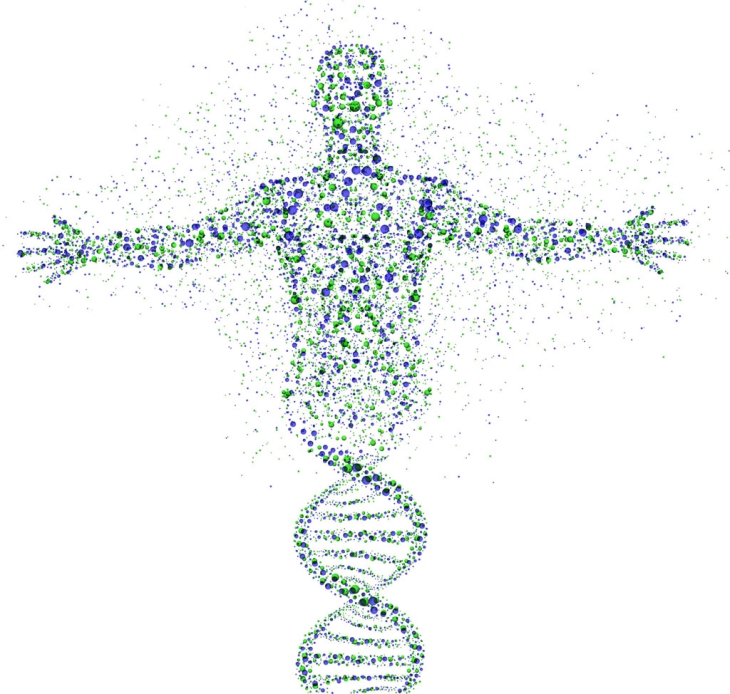
For those who bear witness to a family member’s struggle with addiction, the world may be fraught with troubling questions: Why is this happening? Is addiction genetic? What’s my own risk of addiction?
While one response could never fully cover all these questions, some of the answers might be closer-at-hand than you think.
Addictive Behaviors in the Genes?
The predisposition to addictive behavior is, in many cases, embedded inside us.
While the field of neuropsychology is continuing to grow and research on the subject is still emerging, scientists have begun to connect some biological dots between our genetics and our risk of alcohol and drug addiction. Studies have shown, for example, that people with a family history of alcoholism have also inherited smaller amygdalas—the region of the brain that caters to the kinds of emotions associated with cravings.
Other research has pointed to people predisposed to alcohol addiction showcasing fewer, or different, biological signals letting them know that it’s time to stop drinking. And still, other reports have found a link between the tendency to develop alcohol use disorder and the levels of the mood regulator serotonin found or created in the body.
Still, not every biological scenario is as cut and dry as “being born this way.” Many people are born with genetic markers that may not be enough, on their own, to open the door to addiction, but could increase its likelihood when combined with other factors. It all depends on how a gene is “expressed” (i.e., how the specific aspects of its DNA get activated).
A gene may have all kinds of different biological possibilities but only actually “express” a few. But outside factors can act as catalysts, working to flip genetic switches that can turn other aspects of a gene’s DNA on and off.
And when it comes to genetic expressions that would encourage drug and alcohol addiction, one of the most significant impactors is stress.
That’s at least partly because hormones released in the body during stressful situations can flip different genetic switches in some people predisposed to addiction, changing the ways they receive and interact with chemicals sent out by the brain’s reward system. This chemical interaction can further tie in our minds the concepts of drug or alcohol consumption and the sensation of satisfaction or relief.
In short, it seems at least some aspects of addiction are genetic. (This goes for drug and alcohol use along with any other activity that can be considered addictive, such as gambling or overeating.) And the biological conditions that may put us at higher risk of developing addictive behaviors can be genetically inherited.
All in all, though, the emerging science paints a complicated portrait of the causes and effects of addiction and genes aren’t even the only biological factor that can influence our risk of developing these behaviors.
Other Biological Factors of Addiction
Though alcohol and drug addiction are typically considered more social diseases, genetics and epigenetics—gene expressions triggered by environmental conditions, such as the effects of stress—make up anywhere between 40-60% of a person’s risk of addiction.
Besides genetic traits that may pass down in families with addiction issues, a host of less specific biological factors can also play a role.
Gender
Gender is one of the leading indicators of addiction potential, drawing a few interesting lines in the sand regarding the different risk factors facing men and women.
On a very general level, men are more likely to use drugs and alcohol than women and are also more likely to overdose. Women, on the other hand, have been found more susceptible to experience cravings or relapse.
But gender can impact almost every way alcohol and drug addiction manifests in a person, with everything from different body chemical compositions to different general body weights playing a role.
Ethnicity
Ethnicity is another factor that seems to impact the risk of drug or alcohol addiction—even from a purely biological level—thanks to factors like different drug metabolism rates, which may affect drug sensitivity and the overall potential for addiction or overdose.
Age
The age when one begins drinking or using a drug is another biological condition that can play a massive part in developing addictive behaviors. That’s because the human brain is still growing in critical ways throughout puberty. Introducing it to a mind-altering substance during this time could affect neurological pathways, making a person that much more susceptible to the possibility of long-term drug and alcohol abuse.
Mental Health
And even mental health disorders can create different biological conditions that may affect one’s tendency to pick up addictive behaviors. Depression, anxiety, and attention deficit hyperactive disorder (ADHD) are just a few mental health conditions that have shown links to drug and alcohol addiction.
Addiction Risks and Nature Vs. Nurture
When examining any type of human behavior, many people are eager to paint the cause as an issue of “Nature vs. Nurture.”
When it comes to something as complex as alcohol and drug addiction, it can be challenging to determine where nature (our biological makeup) ends and nurture (our environment’s conditions) begins. Even our genes themselves can be impacted by outside factors, triggering further biological developments.
Yet, just as there are biological factors that play their role in potentially addictive behaviors, so too are there outside conditions that could lead to a greater likelihood of drug or alcohol abuse.
As discussed above, stress is an enormous environmental factor that could influence how the genes we’re born with respond to their predisposition toward addictive behaviors. But even those without those genes can face an emotional fallout from the stress that makes developing addictive habits more likely. Everything from family dynamics to the state of one’s romantic relationship to workplace concerns to unexpected factors like the death of a loved one can contribute to greater stress loads.
Additionally, it’s not just the environment we create for ourselves, but the one that, in many ways, makes us that can impact our addictive behaviors. Outside factors that may affect your addictive nature in the future include:
- Your upbringing: Whether our caretakers or other influential individuals modeled the use of drugs and alcohol for us growing up can significantly affect our attitudes toward drugs and drinking.
- The general level of stability, safety, and love we felt growing up.
- The general availability of alcohol (typically a larger factor for younger people) and drugs throughout childhood and teenage years. These can be “legal” drugs, which might lead to illicit drugs, with the recent correlation between prescription drug use and cases of opioid addiction as one example.
As stated earlier, it’s almost always some combination of these factors impacting whether we become addicted to drugs and alcohol. There’s no real measurement of whether nature or nurture affects us more heavily.
You may have a genetic predisposition to develop addictive behaviors, but you don’t have to be born with specific genes to fall prey to drug or alcohol abuse. You may grow up in a chaotic household where drinking and doing drugs is modeled by your caregivers, but you might use that example to resist creating addictive cycles.
Every person, and every personal situation, is different, and any number of factors may impact us in different ways.
Overcoming Our Biological Destiny
If you have addiction in your family or if your environment makes developing these behaviors more likely, there are some strategies you can use to try to sidestep the cycle altogether.
In general, maintaining a healthy lifestyle through diet and exercise is a great way to stay focused and reduce stress, which could pay dividends toward avoiding addictive behaviors.
Indulging our interests is another good way to avoid drug use, especially for younger people. Some studies have shown that communities that offer healthy after-school activities, such as sports, drama, and other recreations, have fewer instances of drug use.
Even who we choose to be around can impact our addictive tendencies. Research on animals has shown that the actions of a cage mate could trigger drug-seeking behavior. It’s essential then, to choose our company wisely and discerningly whenever possible.
Ultimately, though, there’s no cure-all when it comes to avoiding addiction. Sometimes, despite all our best efforts, we find ourselves struggling.
If you or someone you know is experiencing addiction issues or would like more information on drug or alcohol abuse and rehab options, get help today at
800-681-1058
(Who Answers?)
.

